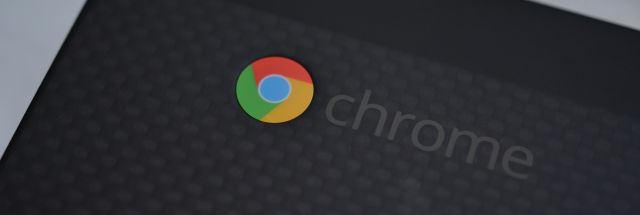The project is called “Lacros” which Google says stands for “Linux And ChRome OS.” This will split ChromeOS’s Linux OS from the Chrome browser, allowing Google to update each one independently.
Previously ChromeOS was using a homemade graphics stack called “Freon,” but now with Wayland, it’ll be on the new and normal desktop Linux graphic stack. Google’s 2016 move to Freon was at a time when it could have moved from X11 (the old, normal desktop Linux graphics stock) directly to Wayland, but it decided to take this custom detour instead. Google says this represents “more Wayland support” because Wayland was previously used for Android and Linux apps, but now it’ll be used for the native Chrome OS graphics, too.



all chromeOS needs to be immensely more useful is flatpak support, if chrome OS supported flatpaks directly, it could very well be my goto (well not chromeOS directly, probably thoriumOS) for older linux PCs for general populace
Not sure they will do that. Really hard to guess what the future is for ChromeOS. I don’t know that developing it into a good general purpose OS is their aim.
ChromeOS seems like a very strategic product niche for Google. Their big business is advertising and the Chrome browser and Android seem like an insurance policy to protect that business.
ChromeBooks focussed on the education market almost to the exclusion of all else and their main selling point there was cost. Now with a lot of low quality, low margin hardware dead or running out of software updates they risk being viewed as the single use plastics of the computing industry. I am sure that influenced the pairing with Framework but it might be too little too late. It still doesn’t address the software update situation. The Android model of manufacturers dropping support the moment they have our cash isn’t sustainable. I wouldn’t be surprised if eventually consumer legislation catches up with it in some markets.
It is hard to see how the ChromeOS experiment benefited Google’s core business. I am sure they made millions on education cloud services but it is pocket money compared to Google’s main source of revenue. Without knowing exactly what their thinking was going into that market or what they achieved I don’t know how much priority they are likely to give to turning ChromeOS into a compelling platform for the general population.
Chromebooks found their way into enterprise niches and were gifted as zero support browsing appliances for grandparents but the push into those markets never felt focussed or important to Google. I doubt Google execs think about ChromeOS the way we are thinking about it.
it’s worth noting that chromebooks are seeing a good chunk of consumer adoption as it is already as a lot of people who are leaving schools are sticking with them now.
chromebooks are actually fairly sustainable, a large amount of them more or less run fine on mainline linux, and flashing linux to the newer models typically is not that hard. also we have already reached a point in computing where even cheap computers have a really strong staying power. I currently have a Lenovo N22 (winbook but exact same as the chromebook specs wise) running arch + kde, and daily use, it’s perfectly fine, it can do youtube, email facebook etc.
it’s not the fastest PC but it manages to chug along and work fine, it was one of, if not the cheapest laptop you could actually get in 2016/2017 era, and it’s still usable, as long as the hardware itself doesn’t physically die, even arm chromebooks to this date remain usable machines, and when you can flash mainline linux kernels on them then I can really see 3rd party forks like thoriumOS being a strong choice.
as it stands from an ex-computer salesman perspective (and someone who actually supports the products they sell being a key point), chrome(ium)OS is so close to being a really good choice for a linux distro. the only other one im actually waiting for is popOS, waiting to see how cosmic-epoch turns out
What’s the battery life like?
now? it’s roughly 4-7 hours depending on usage, it used to be a lot longer, but it has undergone some heavy use, and never has had the battery replaced
ChromeOS already supports Flatpaks.
https://flatpak.org/setup/Chrome OS
only via crostini which is a crosvm instance (kinda like qemu)
Right, and that’s very easy to set up with the GUI ChromeOS provides.
it may be relatively easy for folk like us, but for the general user I would not consider it so, you also have performance implications as it’s running in a VM. even with venus the overhead will always be there, and you wont be able to rid of it until stuff like virtio-native-context is widespread and common. but even then thats just the gpu side, you still have to worry about i/o and memory stuff.
not a good solution